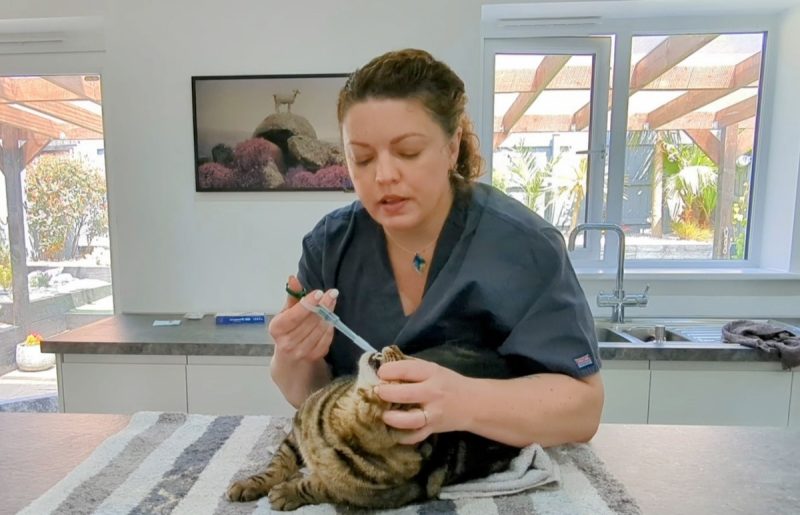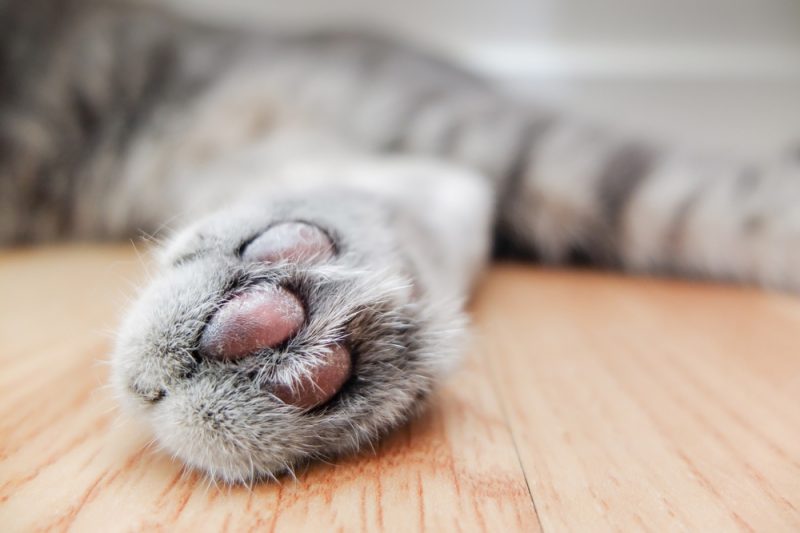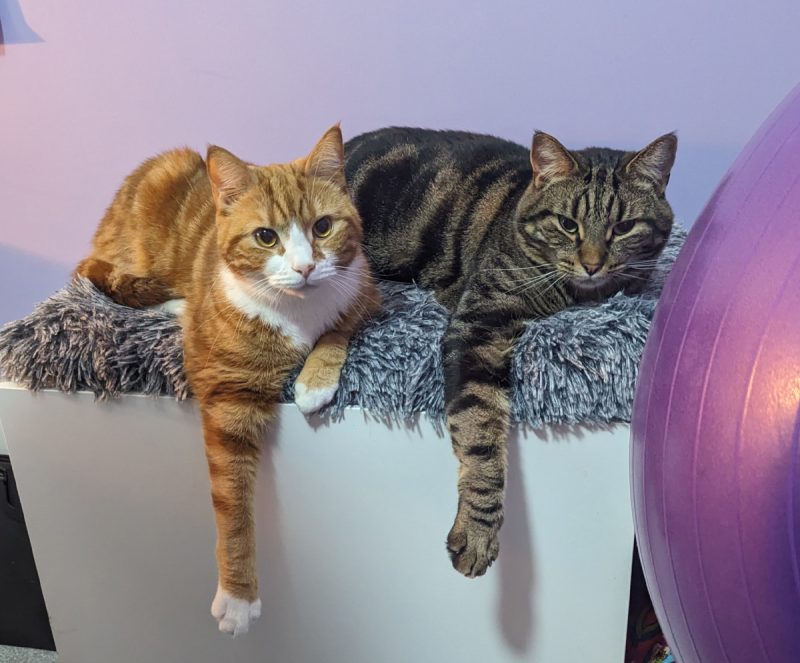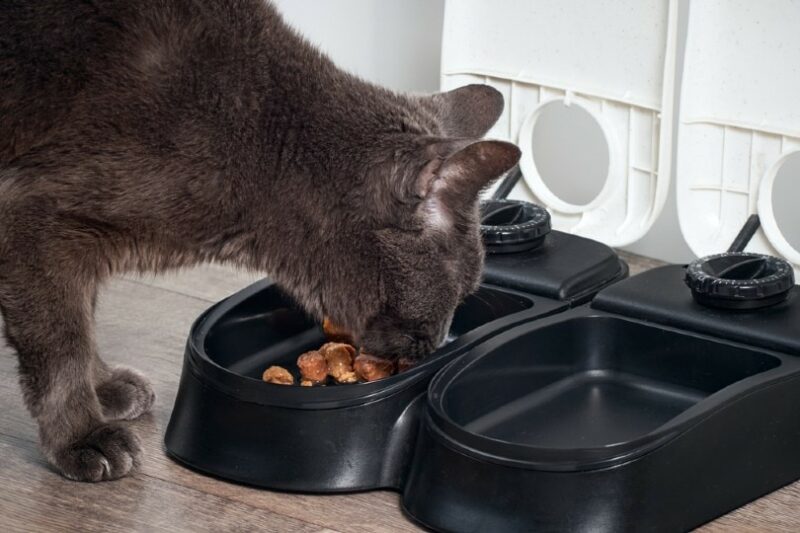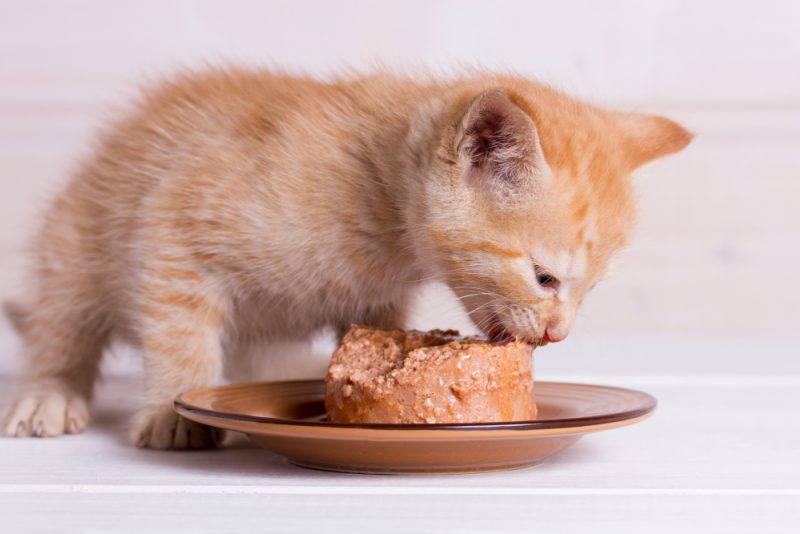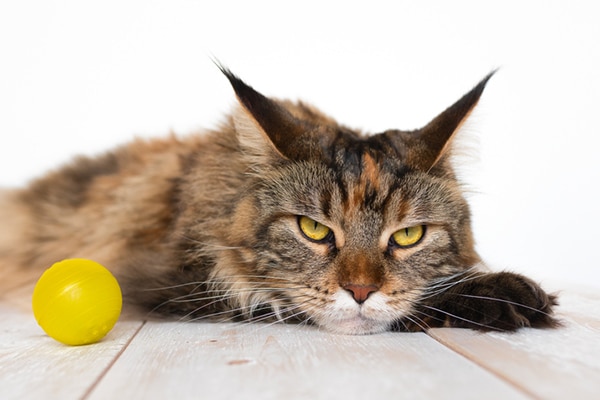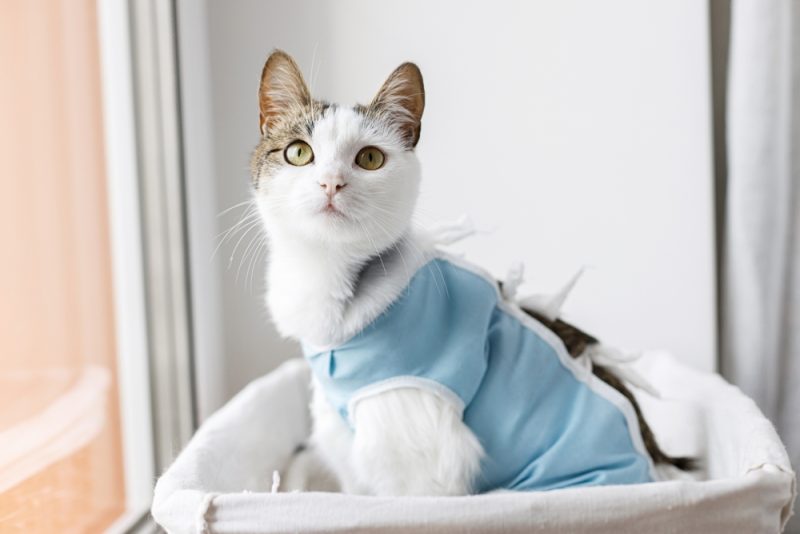In this article
Pyrantel pamoate, or simply pyrantel, is an antiparasitic substance for treating certain types of intestinal worms in cats. This substance does not kill all intestinal worms, though, so certain dewormers have two or more substances in their composition (including pyrantel) for maximum effectiveness.
Intestinal parasites in cats are more common than most pet parents think, and even deworming your kittens might be necessary. Adult cats can become infested when ingesting parasite eggs, but kittens can become infested with intestinal worms via their mother (transmitted through milk). It’s recommended to talk to your veterinarian about the best deworming treatment for your kitten. Read on to learn more about pyrantel for cats!

What Is Pyrantel Pamoate?
Pyrantel pamoate or embonate is an antiparasitic substance used in the composition of certain medicines (alone or in combination with other antiparasitic substances) to kill intestinal worms. This substance does not kill all species of intestinal worms; it is not effective against whipworms and tapeworms.
- Roundworms (Toxocara cati and Toxascaris leonina)
- Stomach worms (Ollanulus tricuspis and Physaloptera spp.)
- Hookworm (Ancylostoma spp.)
To kill a wide variety of intestinal worms in cats (including whipworms and tapeworms), vets can recommend drugs that contain a combination of anthelmintic substances. An example of a drug that’s effective against several types of intestinal worms is Drontal Allwormer, which contains praziquantel plus pyrantel embonate/pamoate.
Pyrantel pamoate is a depolarizing neuromuscular blocking agent that acts on intestinal worms by paralyzing them. As a result, the worms will no longer be able to move, and the body will eliminate them through the feces. The most popular brand names include Nemex® and Strongid®.
Pyrantel pamoate is available in three pharmaceutical forms: tablets, liquid, and oral paste. Products should be stored below 30°C (86°F), and oral suspensions must be shaken well before use because they might separate. Like many medications, it should be protected from direct sunlight.


How Is Pyrantel Pamoate Given?
Pyrantel pamoate is available in three pharmaceutical forms, each with its own concentrations:
- Tablets (22.7 mg, 62.5 mg, and 113.5 mg)
- Suspension (2.27 mg/ml, 4.54 mg/ml, 50 mg/ml)
- Oral paste (180 mg/ml)
The usual pyrantel pamoate dosage for cats is 2.5–5 mg/lbs. (5–10 mg/kg). The dose is repeated after 2–4 weeks or as recommended by your vet.
Pyrantel pamoate can be administered at any time: before, during, or after a meal. However, some vets recommend administering the medicine before meals (in the morning on an empty stomach), and feeding should be done 1–2 hours after giving the medicine to your cat.
If your cat experiences vomiting or diarrhea after being given the medication on an empty stomach, it is recommended to give the next dose with a small amount of food.
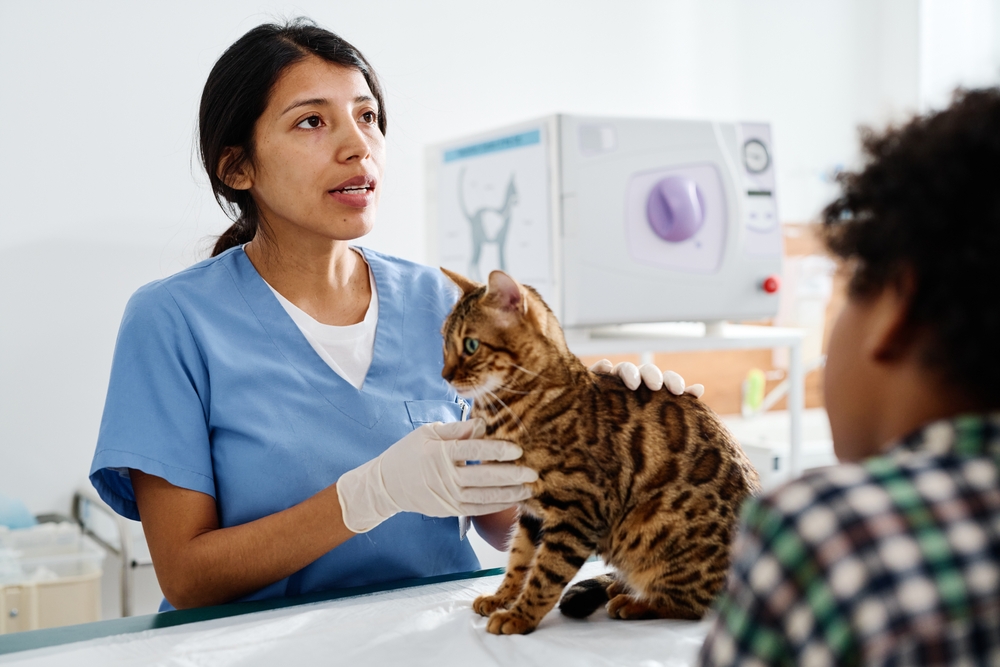

What Happens if You Miss a Dose?
If you miss a dose, give it to your cat when you remember, and then continue according to the usual schedule. Do not give your cat two doses at the same time because you risk doing more harm. If you give your cat too much pyrantel pamoate, they can experience severe side effects.
If you ever have doubts, do not hesitate to contact the vet.
If you need to speak with a vet but can't get to one, head over to PangoVet. It's an online service where you can talk to a vet online and get the advice you need for your pet — all at an affordable price!

Potential Side Effects of Pyrantel Pamoate
Pyrantel pamoate is a safe drug with no or very rare side effects when administered correctly. However, there may still be cases when side effects may occur.
- Nausea and vomiting
- Diarrhea
- Abdominal pain
- Decreased or lack of appetite
- Lethargy
However, it is normal for a cat to have soft stools (or vomiting) for a while after taking pyrantel pamoate. Contact the veterinarian if the clinical signs do not disappear or worsen within 24 hours after administration. Moreover, cats with kidney or liver disease can experience long-term side effects.


Frequently Asked Questions
What Are the Clinical Signs of Intestinal Parasites in Cats?
When a cat becomes infested with intestinal parasites, the clinical signs do not occur immediately, but a certain period must pass (depending on the parasite).
- Vomiting (sometimes with parasites)
- Coughing (in massive infestations, some cats even cough up worms)
- Hypersalivation
- Diarrhea
- Soft stools
- Presence of parasites in your cat’s stool
- Mucus in your cat’s stool
- Abdominal pain
- Distended abdomen
- Frequent grooming of the anal area
- Weight loss, even if your cat has an appetite
- Behavioral changes
However, some cats may not show any clinical signs and are still infected with intestinal parasites. In addition, the clinical signs may vary depending on the parasite species.
The appearance of one or more clinical signs indicates that something is wrong with your cat, and you should contact the veterinarian. Remember that many of these clinical signs are common to other diseases, and only the veterinarian can make a correct diagnosis.
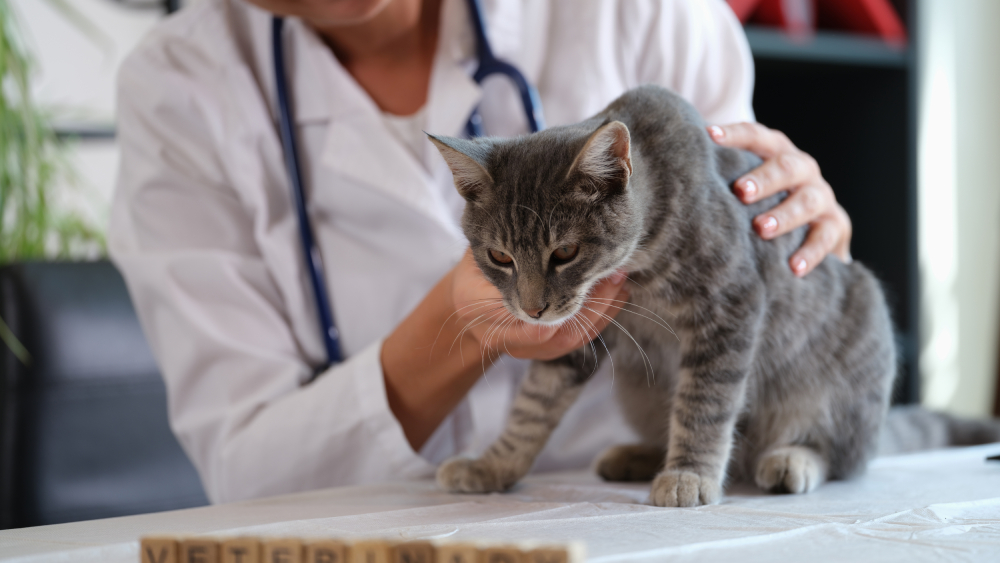
What Does a Deworming Schedule Look Like for Cats?
- Their age (kitten or adult)
- The environment in which they live (indoor, outdoor, or indoor/outdoor)
- How often they make contact with the outside world
- How often they come into contact with wild animals and other cats
Kitten Deworming Schedule
- Your kitten’s first deworming should be done at 2 or 3 weeks of age, then you should repeat it every 2 weeks until the age of 12 weeks.
- Between the ages of 3 and 6 months, deworming should be done once a month.
- After the age of 6 months, the kitten will be dewormed once every 3 months, twice a year, or as recommended by the veterinarian.
Adult Cat Deworming Schedule
The deworming schedule for adult cats will depend on the environment in which they live. As a result, those that live outdoors or indoor/outdoor should be dewormed once every 1–3 months. These cats present a higher risk of infection with intestinal parasites.
Cats that live only indoors should be dewormed once or twice a year.

Conclusion
Pyrantel pamoate for cats is an effective anthelmintic substance in the treatment of certain species of intestinal parasites. This substance is not effective against whipworms or tapeworms. To cover these two types of intestinal worms, there are dewormers that contain another anthelmintic substance in addition to pyrantel.
Pyrantel is available in several pharmaceutical forms, and the usual dosage for cats is 2.5–5 mg/lb, with repetition every 2–4 weeks or as recommended by the vet. Side effects are rare when the appropriate dose is administered. If you missed a dose, give your cat their medicine when you remember, and then follow the usual schedule. Do not give two doses at once because overdosing can lead to severe side effects. If your cat shows persistent or severe clinical signs after administration, contact your veterinarian immediately.
Featured Image Credit: thodonal88, Shutterstock
